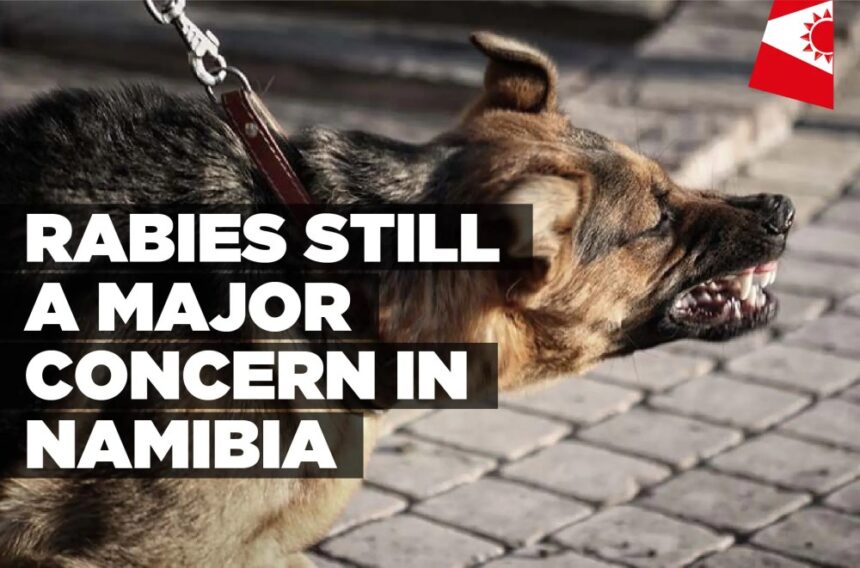As five Namibians succumb to rabies last year
Staff Reporter
AS the world commemorates World Rabies Day on 28 September, Namibia is not spared from the devastating impact of rabies especially among rural communities and those furthest behind in terms of access to health care services. In 2022, the country lost 5 lives due to rabies, and 4 of them were children under the age of 15 years.
This was said by the deputy minister of health, Dr. Utjiua Muiinjangue explained that although Namibia has managed to control infectious diseases such as malaria, HIV prevalence, TB incidence, and infant and child mortality rates to name a few, the zoonotic diseases have not received enough attention, especially the Neglected Tropical Diseases of which Rabies is one of them. She added that therefore, concerted efforts that can only be achieved through an established One Health Coordinating body are essential to prevent the loss of lives due to rabies.
The minister explained that Rabies is a vaccine-preventable viral disease that occurs in more than 150 countries. It causes about 59,000 deaths every year, mainly in Asia and Africa, 40% of whom are children under 15 years of age. Dogs are the main source of human rabies deaths, contributing up to 99% of all rabies transmissions to humans.
“Therefore, in the spirit of the One Health Approach, MoHSS has taken a stand to support veterinary services to reach high coverage for rabies vaccination in dogs as this strategy has demonstrated to be a cost-effective public health intervention for the prevention of rabies-associated morbidity and mortality in humans,” Dr. Muiinjangue said.
The further explained that the three ministries, namely the MoHSS, MAWL, and, the MEFT in collaboration with quadripartite partners (WHO, WHOAH, and FAO) and other organizations such as FLI have been in have been working together to strengthen the surveillance of rabies and overall control of zoonotic diseases.
“This commemoration came at the right time when the country is fast-tracking the establishment of the Namibia Public Health Institute which will further strengthen the country’s One Health Strategy as well as consolidate the collaboration among different role players on rabies control in Namibia,” Dr. Muiinjangue said.



Leave a Reply